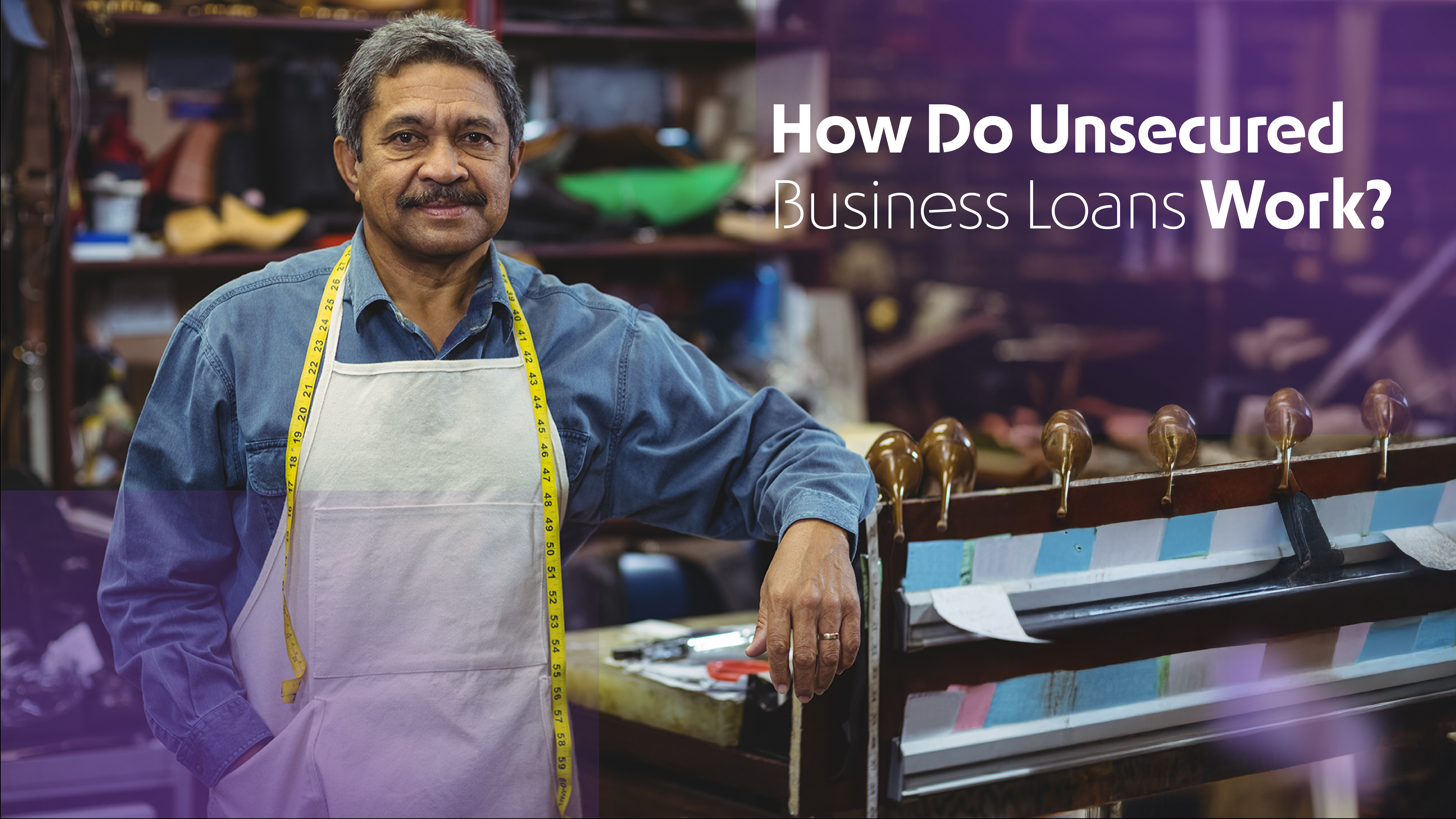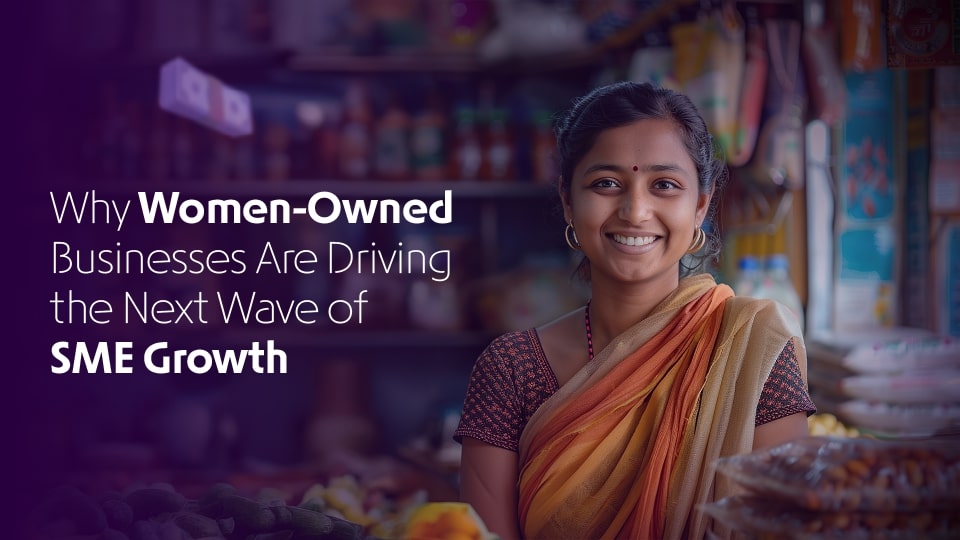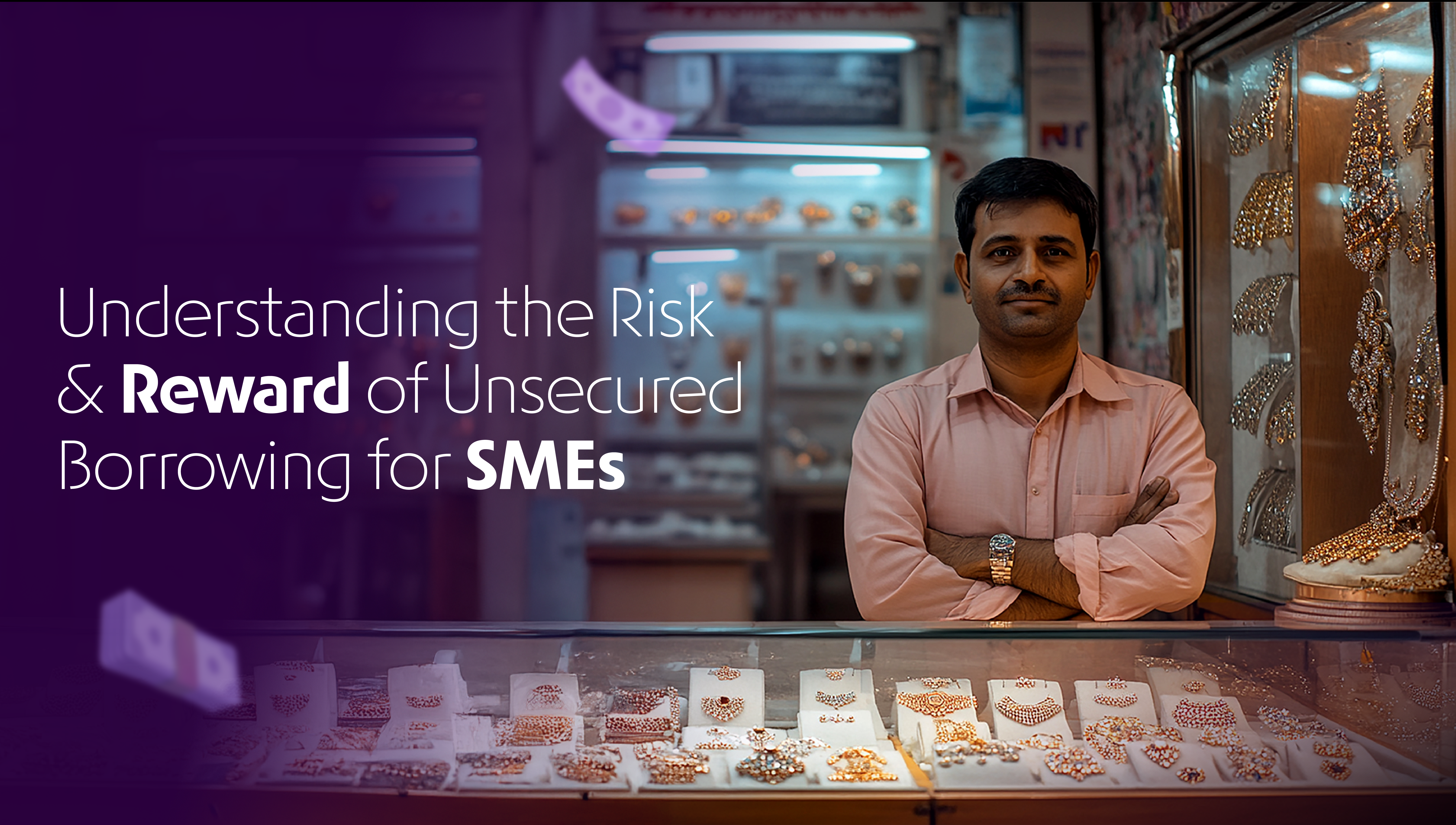Running a business in India—whether it’s a bustling retail store in Bengaluru or a high-growth tech startup in Gurgaon—requires one thing above all: capital.
The need for funds is constant, whether it’s to manage a temporary cash flow gap, scale up operations, or seize a sudden market opportunity. However, for many small and medium-sized enterprises (SMEs), traditional bank loans often hit a roadblock: the requirement of tangible collateral, or security.
This is where the power of unsecured business loans comes in. As the name suggests, these are loans that require no asset—no property, machinery, or fixed deposit—to be pledged as security. They represent a fundamental shift in how small businesses secure funding, moving the focus from ‘what assets do you own?’ to ‘how healthy is your business?’
If you’re an entrepreneur looking for quick business financing without putting your personal or business assets at risk, understanding the mechanics of an unsecured loan is your first big step.
What Exactly is an Unsecured Business Loan?
Simply put, an unsecured business loan is a type of financing extended by a lender based purely on the borrower’s creditworthiness, business performance, and financial track record.
Instead of relying on an asset they can seize in case of default, the lender assesses the risk based on the stability and profitability of your business itself. They look at your past revenues, banking history, cash flow consistency, and your overall credit score (like your CIBIL score) to determine your ability to repay.
How Does Collateral-Free Lending Work in India?
The rise of technology and alternative data has made collateral-free lending more accessible than ever, especially for Indian SMEs.
- Risk Assessment: Lenders, particularly modern fintech platforms, use sophisticated algorithms to analyse digital footprints like GST returns, bank statements, and payment gateway data. This allows for a much faster, data-driven assessment compared to the long, manual process of valuing collateral.
- Credit Score Focus: Your business credit score (and sometimes your personal score) becomes the most critical eligibility factor. A good score (typically 750+) signals a history of responsible debt management.
- Digital Process: The entire loan application, verification, and approval process is often fully digital. This is the key enabler for instant business loans—allowing funds to be sanctioned and disbursed in days, sometimes even hours, compared to weeks or months with traditional secured loans.
Unsecured Loan Benefits: Why Choose This Route?
Unsecured financing offers distinct advantages that are crucial for the agility and survival of a growing business in a competitive market.
| Key Benefit | How it Helps Indian SMEs |
| No Collateral Needed | Ideal for startups, service-based firms (e.g., software agencies, consulting), or businesses that rent their premises and have few tangible assets to pledge. This is the core of a business loan without security. |
| Faster Processing & Disbursal | Eliminates the lengthy process of asset valuation and verification, allowing for actual quick business financing—perfect for urgent working capital needs like seasonal inventory purchase. |
| Flexible Use of Funds | The loan amount can be used for almost any legitimate business purpose, from funding working capital to expanding into a new city or upgrading technology. |
| No Risk to Assets | Your primary business or personal assets (home, factory, machinery) remain safe, reducing the stress and financial risk associated with defaulting on a secured loan. |
Who is Eligible? Unsecured Loan Eligibility Criteria
While criteria vary between lenders, especially between banks and fintech platforms, most unsecured loan providers focus on the following key metrics for Indian MSMEs:
Must-Have Eligibility Requirements
- Business Vintage: Minimum of 1 to 3 years of operational history. (Newer digital lenders may consider less).
- Annual Turnover: A minimum annual turnover (e.g., ₹6 lakhs to ₹40 lakhs) to prove the business is generating consistent revenue.
- Credit Score (CIBIL): A strong credit score, generally above 700 or 750, is preferred as it directly reflects repayment reliability.
- Business Type: Must be a registered entity (Proprietorship, Partnership, Private Limited Company, or LLP) in manufacturing, trading, or services.
Documentation for the Digital Age
The beauty of a digital application is the minimal documentation required, focusing on financial health rather than asset papers:
- KYC Documents: PAN card and Aadhaar card of the proprietors/directors.
- Business Proof: GST Registration Certificate, Udyam Registration, or Shop & Establishment Certificate.
- Financial Documents:
- Bank statements for the last 6 to 12 months.
- GST returns (GSTR-3B) for the last 6 to 12 months.
- Income Tax Returns (ITR) for the last 1-2 years.
Pro Tips: Improving Your Chances of Loan Approval
For the discerning small business owner, mastering the application process is key to getting the best terms on your business loan without security.
- Maintain Pristine Bank Statements: Lenders check your statements meticulously. Avoid frequent cheque bounces (ECS/NACH failures) and ensure cash flow is stable and visible. This demonstrates clear repayment capacity.
- Regularly File GST and ITR: Consistent and accurate filing of your GST and ITR is the digital equivalent of an accountant’s stamp of approval. It validates your stated turnover and profitability.
- Manage Your Business Debt-to-Income Ratio: Even with a good credit score, having too much existing debt compared to your income (cash flow) will reduce your chance of approval. Keep your existing credit card utilisation low and repay current EMIs diligently.
- Know Your ‘Why’: Be clear about the purpose. A loan request for “Expansion and new inventory” looks much better than one for “General expenses.”
Alternative Lending Options Beyond Traditional Banks
The Indian lending landscape has evolved, providing several alternative lending options for quick funding, especially for working capital needs:
- Invoice/Receivable Financing: You get immediate cash by selling your outstanding customer invoices (receivables) to a financial institution at a slight discount. This is a game-changer for businesses with long client payment cycles (e.g., B2B services).
- Merchant Cash Advance (MCA): Ideal for businesses that use a Point-of-Sale (POS) machine or payment gateway heavily. The loan is repaid automatically via a fixed percentage deduction from your daily card/digital sales.
- Government-Backed Schemes: Initiatives like the CGTMSE Scheme offer collateral-free credit guarantees to MSMEs, effectively de-risking the loan for the lender and encouraging financing without security.
Your Digital Path to Collateral-Free Growth
In the modern Indian economy, fintech platforms have mastered the art of providing truly instant business loans. They leverage the digital trail of your business—your online payments, your tax filings, your banking data—to offer customised credit solutions faster than ever before.
This is the philosophy behind OPEN Capital.
Recognising the challenges of securing quick financing in India, we offer fully digital, collateral-free business loans up to ₹30 Lakhs. Our process is designed to analyse your business’s real-time financial health and growth potential, not just the assets you can pledge. From application to disbursal, the journey is fast, transparent, and built entirely around the convenience of the busy Indian entrepreneur.
Frequently Asked Questions (FAQ)
What is the typical interest rate for unsecured business loans in India?
Interest rates for unsecured loans are generally higher than secured loans due to the increased risk for the lender. They typically start from around 13%–16% p.a. and can go up depending on your credit score, business vintage, and the lender’s risk profile. A stronger profile will always secure a better rate.
How fast can I get an unsecured business loan?
With digital lenders and fintech platforms, the approval process can be completed in as little as 24-72 hours. Once approved, disbursal of the quick business financing can happen almost immediately, sometimes within the same business day, provided all digital documentation is complete.
Can a startup or a new business apply for a business loan without security?
Yes, but it is challenging. While most traditional lenders require 2-3 years of vintage, some fintech platforms focus on revenue-based lending for businesses with a minimum of 6–12 months of operations and consistent, verifiable monthly turnover.
Does the lender require a personal guarantee for an unsecured business loan?
In many cases, yes. Since there is no physical collateral, the lender may require a personal guarantee from the proprietor, partner, or director. This means that if the business defaults, the lender can pursue the personal assets of the guarantor to recover the loan amount.
What is the maximum loan amount available for a collateral-free loan?
The amount varies widely. While government-backed schemes like MUDRA offer up to ₹10 Lakhs, many NBFCs and fintech platforms offer unsecured loans up to ₹30 Lakhs, and for high-credit-profile businesses, sometimes up to ₹50 Lakhs or ₹1 Crore.
How does my CIBIL score affect the loan process?
Your CIBIL score is crucial for unsecured loan eligibility. A score of 750+ indicates low risk and can help you secure a higher loan amount at a lower interest rate and faster approval. A score below 700 will significantly reduce your chances or result in higher interest charges.



